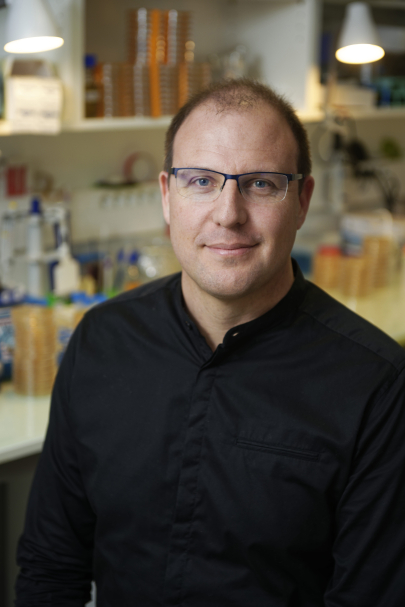François LeulierChercheur CNRS à l'Institut de génomique fonctionnelle de Lyon (IGFL) CNRS / ENS de Lyon / Université de Lyon
Mes recherches
I am a geneticist by training. I obtained in 2003 my Ph'D under the supervision of Pr. Bruno Lemaitre at the CNRS "Centre de Génétique Moléculaire" in Gif-sur-Yvette where I studied the genetic basis of host resistance mechanisms to bacterial infections using Drosophila as a model host. After a post-doctoral training in the lab of Pr. Pascal Meier at the Institute of Cancer Research in London he was hired in 2007 at the CNRS as a staff scientist in the lab of B.Lemaitre and two years later I joined the lab of Pr Julien Royet at the IBDML in Marseille. In those laboratories, I followed my studies on the mechanisms underlying host resistance to bacterial infections. In 2011, I showed that intestinal Lactobacilli promote juvenile systemic growth in Drosophila and was appointed by the FINOVI foundation in summer 2012 to set up a research group at the "Institut de Génomique Fonctionnelle de Lyon (IGFL)" at the ENS de Lyon to develop his research on deciphering the mechanisms underlying the beneficial properties of intestinal Lactobacilli on their host biology using Drosophila and Mice as host models. I also received the ATIP-Avenir label and an ERC starting grant to set-up my lab. Since then, my lab at IGFL is developing research programs in bacteriology and animal physiology and nutrition to decipher the functional interplays between the intestinal microbiota, lactobacillus strains and chronic undernutrition and their influence on juvenile growth dynamics.
Mon projet ATIP-Avenir
Host-Intestinal bacteria mutualism: “learning on the fly”
MutFlyGutBact
Metazoans establish reciprocal interactions with the bacterial communities that colonize their mucosal surfaces. These interactions contribute to many aspects of host physiology including the promotion of digestive efficiency and proper immune system development and homeostasis. In return, the microbiota derives benefit from the association with its host by inhabiting a nutrient rich environment. When deregulated this relationship results in pathological outcomes such as episodic infectious diseases, chronic inflammatory diseases, metabolic disorders or even some cancers. Despite recent progress, a clear view of the physiological benefits associated with host/microbiota relationship remains elusive. Hence the molecular mechanisms through which the microbiota exerts its beneficial influences are still largely undefined. The goal of this research proposal was to decipher the molecular dialogue governing the mutualistic interaction between intestinal bacteria and their host. To this end, we used an animal model, Drosophila melanogaster and one of its natural commensals, Lactobacillus plantarum. We aimed to develop a multiscale functional approach and study the molecular mechanisms underlying their mutualistic association. This integrated approach coupled a host and a bacteria centred-view of this beneficial interaction to identify the bacterial and host genetic networks required to sustain a mutualistic relationship. We revealed how these molecular activities translate into cellular, tissular and organismal functional benefits and uncovered the interdependency of these benefits. Using a model lactic acid bacteria species and an animal host model with evolutionary conserved molecular and physiological features, our approach was relevant to most lactobacilli/host interactions including those occurring in humans. This project provided fresh and unbiased insight into the fundamental biological question of host/microbe mutualism.
François Leulier est également lauréat ERC Starting Grant 2012
